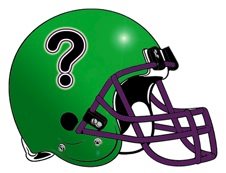 It’s a philosophy now backed by science after proported by poets and tutors alike for decades, so you’re damn straight we can use it NFL betting.
It’s a philosophy now backed by science after proported by poets and tutors alike for decades, so you’re damn straight we can use it NFL betting.
The simple philosophy is: First thought, best thought.
Now, we’re not talking about impulse betting here, nor about a lightning-quick conclusion about betting next week’s game drawn five minutes after the second round of Sunday’s games. In no way is NFLbets suggesting that you should do no analysis and simply shove that wad at what appears to be a gimme when early lines are released on Monday morning, but it is better to plan to focus the interest on a few games as soon as their lines, over/under, etc., stick out.
Even at his/her most open-minded, the proper bettor will be eyeing six games per week at absolute most; NFLbets will often consider no more than two or three games to focus on – and one maximum in opening week. (Opening week sucks for betting.) Tunnel vision must then immediately take over, as in a few simple corollary rules:
• Do not let a single factor, fact or (especially not) statistic change your mind. Statisticians find crazy-ass outliers because a) these are the – at first sight – mindblowers and B) it is the sports statistician’s job to find mindlblowers.
• Do not overstretch your bounds – and bankroll – by deciding to cover action on more games than those you’ve initially chosen.
• Don’t believe the hype. Whether consciously or subconsciously, TV and internet talking heads will inevitably fall in love with one underdog nearly en masse in any given week. Do not listen to this siren’s song, no matter how tempting.
• Don’t ignore completely, but downplay pretty seriously, reports of injured players returning mid-week and/or ahead of schedule. Even the game-changing RBs, WRs and CBs rarely swing a game’s result three points – yet not infrequently will point spreads morph this much.
• Consider this when thinking about adding another bet to this week’s plays: If that bet you’re about to make really held so much promise, why didn’t it seem attractive at first sight? Why wasn’t the given wager nearly as obvious three days ago?
In short: First thought, best thought in NFL betting.
The negative character of second-guessing is recently coming to the fore in psychology circles, thanks to its paralytic nature in day-to-day life, ostensibly due in part to what is today called “overchoice.” In the 2010s, trends in psychological therapy have led thinkers in the field to link second-guessing to unhappiness and as serious enabler of/result of anxiety.
A psychology Today online piece of 2015 pointed out a particularly salient point on second-guessing, particularly as it relates to sports betting:
“’Am I doing this right?’ is a more pressing question when there’s only one right way. There are often many right ways and anyway you can only guess about which way will prove right in the future, since the future isn’t here today to guide your decision…”
Note that this section of text includes a qualifier in the first sentence: “…when there’s only on right way.” In terms of NFL betting, NFLbets would argue that, for any given wager, there is in fact *only one right way to bet.* This is because that the actual wager itself has zero correct ways and zero incorrect ways to decide. Recall the truism in the text: “you can only guess about which way will prove right in the future.” All bets are ultimately guesses, irrespective of the bettor’s skill level.
No, the actual choice when making a bet is in the future is “Do I hedge or not?” Thanks to the multiplicity of choice available to the NFL bettor online, any bet can easily be second-guessed by the bettor with immediate and negative consequences. Unless you simply enjoy endlessly throwing away money on the vig.
First thought, best thought – in NFL betting as well.